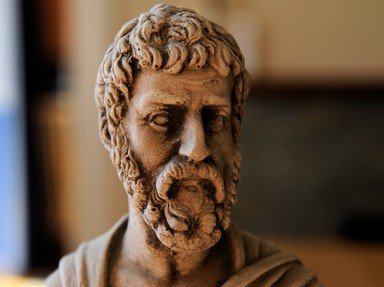
Who Wrote These Great Tragedies? Quiz
The Works of Three Great Greek Playwrights
Aeschylus. Euripides. Sophocles. Three great playwrights. All Greek and tragic. Can you identify whose work is whose?
This is a renovated/adopted version of an old quiz by author marioarcadia
A classification quiz
by LeoDaVinci.
Estimated time: 3 mins.